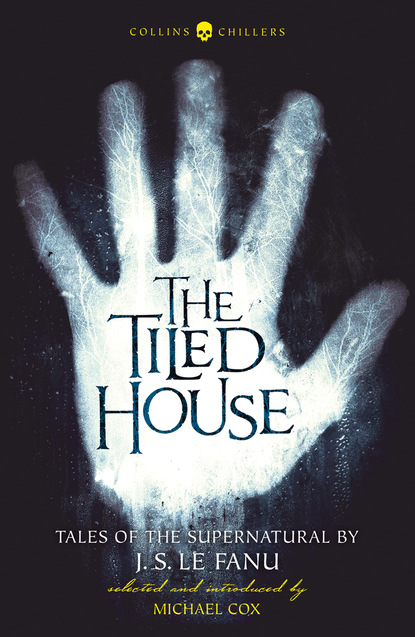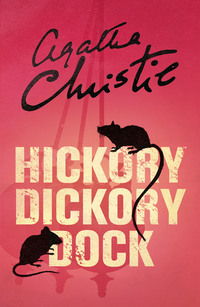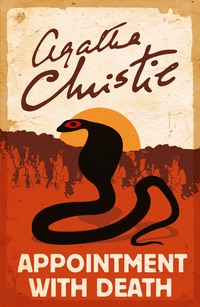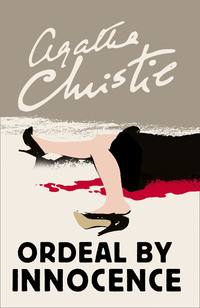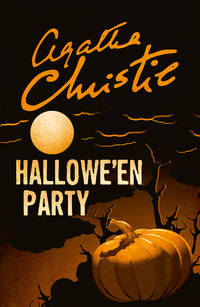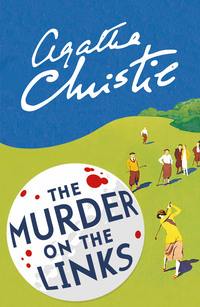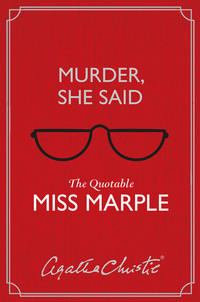
Полная версия
The Last Séance
‘You are Hassan, the late Sir John Willard’s servant?’
‘I served my Lord Sir John, now I serve his son.’ He took a step nearer to us and lowered his voice. ‘You are a wise one, they say, learned in dealing with evil spirits. Let the young master depart from here. There is evil in the air around us.’
And with an abrupt gesture, not waiting for a reply, he strode away.
‘Evil in the air,’ muttered Poirot. ‘Yes, I feel it.’
Our meal was hardly a cheerful one. The floor was left to Dr Tosswill, who discoursed at length upon Egyptian antiquities. Just as we were preparing to retire to rest, Sir Guy caught Poirot by the arm and pointed. A shadowy figure was moving amidst the tents. It was no human one: I recognized distinctly the dog-headed figure I had seen carved on the walls of the tomb.
My blood froze at the sight.
‘Mon Dieu!’ murmured Poirot, crossing himself vigorously. ‘Anubis, the jackal-headed, the god of departing souls.’
‘Someone is hoaxing us,’ cried Dr Tosswill, rising indignantly to his feet.
‘It went into your tent, Harper,’ muttered Sir Guy, his face dreadfully pale.
‘No,’ said Poirot, shaking his head, ‘into that of the Dr Ames.’
The doctor stared at him incredulously; then, repeating Dr Tosswill’s words, he cried:
‘Someone is hoaxing us. Come, we’ll soon catch the fellow.’
He dashed energetically in pursuit of the shadowy apparition. I followed him, but, search as we would, we could find no trace of any living soul having passed that way. We returned, somewhat disturbed in mind, to find Poirot taking energetic measures, in his own way, to ensure his personal safety. He was busily surrounding our tent with various diagrams and inscriptions which he was drawing in the sand. I recognized the five-pointed star or Pentagon many times repeated. As was his wont, Poirot was at the same time delivering an impromptu lecture on witchcraft and magic in general, White magic as opposed to Black, with various references to the Ka and the Book of the Dead thrown in.
It appeared to excite the liveliest contempt in Dr Tosswill, who drew me aside, literally snorting with rage.
‘Balderdash, sir,’ he exclaimed angrily. ‘Pure balderdash. The man’s an imposter. He doesn’t know the difference between the superstitions of the Middle Ages and the beliefs of Ancient Egypt. Never have I heard such a hotch-potch of ignorance and credulity.’
I calmed the excited expert, and joined Poirot in the tent. My little friend was beaming cheerfully.
‘We can now sleep in peace,’ he declared happily. ‘And I can do with some sleep. My head, it aches abominably. Ah, for a good tisane!’
As though in answer to prayer, the flap of the tent was lifted and Hassan appeared, bearing a steaming cup which he offered to Poirot. It proved to be camomile tea, a beverage of which he is inordinately fond. Having thanked Hassan and refused his offer of another cup for myself, we were left alone once more. I stood at the door of the tent some time after undressing, looking out over the desert.
‘A wonderful place,’ I said aloud, ‘and a wonderful work. I can feel the fascination. This desert life, this probing into the heart of a vanished civilization. Surely, Poirot, you, too, must feel the charm?’
I got no answer, and I turned, a little annoyed. My annoyance was quickly changed to concern. Poirot was lying back across the rude couch, his face horribly convulsed. Beside him was the empty cup. I rushed to his side, then dashed out and across the camp to Dr Ames’s tent.
‘Dr Ames!’ I cried. ‘Come at once.’
‘What’s the matter?’ said the doctor, appearing in pyjamas.
‘My friend. He’s ill. Dying. The camomile tea. Don’t let Hassan leave the camp.’
Like a flash the doctor ran to our tent. Poirot was lying as I left him.
‘Extraordinary,’ cried Ames. ‘Looks like a seizure—or—what did you say about something he drank?’ He picked up the empty cup.
‘Only I did not drink it!’ said a placid voice.
We turned in amazement. Poirot was sitting up on the bed. He was smiling.
‘No,’ he said gently. ‘I did not drink it. While my good friend Hastings was apostrophizing the night, I took the opportunity of pouring it, not down my throat, but into a little bottle. That little bottle will go to the analytical chemist. No’—as the doctor made a sudden movement—‘as a sensible man, you will understand that violence will be of no avail. During Hastings’ absence to fetch you, I have had time to put the bottle in safe keeping. Ah, quick, Hastings, hold him!’
I misunderstood Poirot’s anxiety. Eager to save my friend, I flung myself in front of him. But the doctor’s swift movement had another meaning. His hand went to his mouth, a smell of bitter almonds filled the air, and he swayed forward and fell.
‘Another victim,’ said Poirot gravely, ‘but the last. Perhaps it is the best way. He has three deaths on his head.’
‘Dr Ames?’ I cried, stupefied. ‘But I thought you believed in some occult influence?’
‘You misunderstood me, Hastings. What I meant was that I believe in the terrific force of superstition. Once get it firmly established that a series of deaths are supernatural, and you might almost stab a man in broad daylight, and it would still be put down to the curse, so strongly is the instinct of the supernatural implanted in the human race. I suspected from the first that a man was taking advantage of that instinct. The idea came to him, I imagine, with the death of Sir John Willard. A fury of superstition arose at once. As far as I could see, nobody could derive any particular profit from Sir John’s death. Mr Bleibner was a different case. He was a man of great wealth. The information I received from New York contained several suggestive points. To begin with, young Bleibner was reported to have said he had a good friend in Egypt from whom he could borrow. It was tacitly understood that he meant his uncle, but it seemed to me that in that case he would have said so outright. The words suggest some boon companion of his own. Another thing, he scraped up enough money to take him to Egypt, his uncle refused outright to advance him a penny, yet he was able to pay the return passage to New York. Someone must have lent him the money.’
‘All that was very thin,’ I objected.
‘But there was more. Hastings, there occur often enough words spoken metaphorically which are taken literally. The opposite can happen too. In this case, words which were meant literally were taken metaphorically. Young Bleibner wrote plainly enough: “I am a leper”, but nobody realized that he shot himself because he believed that he contracted the dread disease of leprosy.’
‘What?’ I ejaculated.
‘It was the clever invention of a diabolical mind. Young Bleibner was suffering from some minor skin trouble; he had lived in the South Sea Islands, where the disease is common enough. Ames was a former friend of his, and a well-known medical man, he would never dream of doubting his word. When I arrived here, my suspicions were divided between Harper and Dr Ames, but I soon realized that only the doctor could have perpetrated and concealed the crimes, and I learnt from Harper that he was previously acquainted with young Bleibner. Doubtless the latter at some time or another had made a will or had insured his life in favour of the doctor. The latter saw his chance of acquiring wealth. It was easy for him to inoculate Mr Bleibner with the deadly germs. Then the nephew, overcome with despair at the dread news his friend had conveyed to him, shot himself. Mr Bleibner, whatever his intentions, had made no will. His fortune would pass to his nephew and from him to the doctor.’
‘And Mr Schneider?’
‘We cannot be sure. He knew young Bleibner too, remember, and may have suspected something, or, again, the doctor may have thought that a further death motiveless and purposeless would strengthen the coils of superstition. Furthermore, I will tell you an interesting psychological fact, Hastings. A murderer has always a strong desire to repeat his successful crime, the performance of it grows upon him. Hence my fears for young Willard. The figure of Anubis you saw tonight was Hassan dressed up by my orders. I wanted to see if I could frighten the doctor. But it would take more than the supernatural to frighten him. I could see that he was not entirely taken in by my pretences of belief in the occult. The little comedy I played for him did not deceive him. I suspected that he would endeavour to make me the next victim. Ah, but in spite of la mer maudite, the heat abominable, and the annoyances of the sand, the little grey cells still functioned!’
Poirot proved to be perfectly right in his premises. Young Bleibner, some years ago, in a fit of drunken merriment, had made a jocular will, leaving ‘my cigarette-case you admire so much and everything else of which I die possessed which will be principally debts to my good friend Robert Ames who once saved my life from drowning’.
The case was hushed up as far as possible, and, to this day, people talk of the remarkable series of deaths in connection with the Tomb of Men-her-Ra as a triumphal proof of the vengeance of a bygone king upon the desecrators of his tomb—a belief which, as Poirot pointed out to me, is contrary to all Egyptian belief and thought.
THE FOURTH MAN
Canon Parfitt panted a little. Running for trains was not much of a business for a man of his age. For one thing his figure was not what it was and with the loss of his slender silhouette went an increasing tendency to be short of breath. This tendency the Canon himself always referred to, with dignity, as ‘My heart, you know!’
He sank into the corner of the first-class carriage with a sigh of relief. The warmth of the heated carriage was most agreeable to him. Outside the snow was falling. Lucky to get a corner seat on a long night journey. Miserable business if you didn’t. There ought to be a sleeper on this train.
The other three corners were already occupied, and noting this fact Canon Parfitt became aware that the man in the far corner was smiling at him in gentle recognition. He was a clean-shaven man with a quizzical face and hair just turning grey on the temples. His profession was so clearly the law that no one could have mistaken him for anything else for a moment. Sir George Durand was, indeed, a very famous lawyer.
‘Well, Parfitt,’ he remarked genially, ‘you had a run for it, didn’t you?’
‘Very bad for my heart, I’m afraid,’ said the Canon. ‘Quite a coincidence meeting you, Sir George. Are you going far north?’
‘Newcastle,’ said Sir George laconically. ‘By the way,’ he added, ‘do you know Dr Campbell Clark?’
The man sitting on the same side of the carriage as the Canon inclined his head pleasantly.
‘We met on the platform,’ continued the lawyer. ‘Another coincidence.’
Canon Parfitt looked at Dr Campbell Clark with a good deal of interest. It was a name of which he had often heard. Dr Clark was in the forefront as a physician and mental specialist, and his last book, The Problem of the Unconscious Mind, had been the most discussed book of the year.
Canon Parfitt saw a square jaw, very steady blue eyes and reddish hair untouched by grey, but thinning rapidly. And he received also the impression of a very forceful personality.
By a perfectly natural association of ideas the Canon looked across to the seat opposite him, half-expecting to receive a glance of recognition there also, but the fourth occupant of the carriage proved to be a total stranger—a foreigner, the Canon fancied. He was a slight dark man, rather insignificant in appearance. Huddled in a big overcoat, he appeared to be fast asleep.
‘Canon Parfitt of Bradchester?’ inquired Dr Campbell Clark in a pleasant voice.
The Canon looked flattered. Those ‘scientific sermons’ of his had really made a great hit—especially since the Press had taken them up. Well, that was what the Church needed—good modern up-to-date stuff.
‘I have read your book with great interest, Dr Campbell Clark,’ he said. ‘Though it’s a bit technical here and there for me to follow.’
Durand broke in.
‘Are you for talking or sleeping, Canon?’ he asked. ‘I’ll confess at once that I suffer from insomnia and that therefore I’m in favour of the former.’
‘Oh! certainly. By all means,’ said the Canon. ‘I seldom sleep on these night journeys, and the book I have with me is a very dull one.’
‘We are at any rate a representative gathering,’ remarked the doctor with a smile. ‘The Church, the Law, the Medical Profession.’
‘Not much we couldn’t give an opinion on between us, eh?’ laughed Durand. ‘The Church for the spiritual view, myself for the purely worldly and legal view, and you, Doctor, with the widest field of all, ranging from the purely pathological to the—super-psychological! Between us three we should cover any ground pretty completely, I fancy.’
‘Not so completely as you imagine, I think,’ said Dr Clark. ‘There’s another point of view, you know, that you left out, and that’s rather an important one.’
‘Meaning?’ queried the lawyer.
‘The point of view of the Man in the Street.’
‘Is that so important? Isn’t the Man in the Street usually wrong?’
‘Oh! almost always. But he has the thing that all expert opinion must lack—the personal point of view. In the end, you know, you can’t get away from personal relationships. I’ve found that in my profession. For every patient who comes to me genuinely ill, at least five come who have nothing whatever the matter with them except an inability to live happily with the inmates of the same house. They call it everything—from housemaid’s knee to writer’s cramp, but it’s all the same thing, the raw surface produced by mind rubbing against mind.’
‘You have a lot of patients with “nerves”, I suppose,’ the Canon remarked disparagingly. His own nerves were excellent.
‘Ah! and what do you mean by that?’ The other swung round on him, quick as a flash. ‘Nerves! People use that word and laugh after it, just as you did. “Nothing the matter with so and so,” they say. “Just nerves.” But, good God, man, you’ve got the crux of everything there! You can get at a mere bodily ailment and heal it. But at this day we know very little more about the obscure causes of the hundred and one forms of nervous disease than we did in—well, the reign of Queen Elizabeth!’
‘Dear me,’ said Canon Parfitt, a little bewildered by this onslaught. ‘Is that so?’
‘Mind you, it’s a sign of grace,’ Dr Campbell Clark went on. ‘In the old days we considered man a simple animal, body and soul—with stress laid on the former.’
‘Body, soul and spirit,’ corrected the clergyman mildly.
‘Spirit?’ The doctor smiled oddly. ‘What do you parsons mean exactly by spirit? You’ve never been very clear about it, you know. All down the ages you’ve funked an exact definition.’
The Canon cleared his throat in preparation for speech, but to his chagrin he was given no opportunity. The doctor went on.
‘Are we even sure the word is spirit—might it not be spirits?’
‘Spirits?’ Sir George Durand questioned, his eyebrows raised quizzically.
‘Yes.’ Campbell Clark’s gaze transferred itself to him. He leaned forward and tapped the other man lightly on the breast. ‘Are you so sure,’ he said gravely, ‘that there is only one occupant of this structure—for that is all it is, you know—this desirable residence to be let furnished—for seven, twenty-one, forty-one, seventy-one—whatever it may be!—years? And in the end the tenant moves his things out—little by little—and then goes out of the house altogether—and down comes the house, a mass of ruin and decay. You’re the master of the house—we’ll admit that, but aren’t you ever conscious of the presence of others—soft-footed servants, hardly noticed, except for the work they do—work that you’re not conscious of having done? Or friends—moods that take hold of you and make you, for the time being, a “different man” as the saying goes? You’re the king of the castle, right enough, but be very sure the “dirty rascal” is there too.’
‘My dear Clark,’ drawled the lawyer. ‘You make me positively uncomfortable. Is my mind really a battleground of conflicting personalities? Is that Science’s latest?’
It was the doctor’s turn to shrug his shoulders.
‘Your body is,’ he said drily. ‘If the body, why not the mind?’
‘Very interesting,’ said Canon Parfitt. ‘Ah! Wonderful science—wonderful science.’
And inwardly he thought to himself: ‘I can get a most arresting sermon out of that idea.’
But Dr Campbell Clark had leant back in his seat, his momentary excitement spent.
‘As a matter of fact,’ he remarked in a dry professional manner, ‘it is a case of dual personality that takes me to Newcastle tonight. Very interesting case. Neurotic subject, of course. But quite genuine.’
‘Dual personality,’ said Sir George Durand thoughtfully. ‘It’s not so very rare, I believe. There’s loss of memory as well, isn’t there? I know the matter cropped up in a case in the Probate Court the other day.’
Dr Clark nodded.
‘The classic case, of course,’ he said, ‘was that of Felicie Bault. You may remember hearing of it?’
‘Of course,’ said Canon Parfitt. ‘I remember reading about it in the papers—but quite a long time ago—seven years at least.’
Dr Campbell Clark nodded.
‘That girl became one of the most famous figures in France. Scientists from all over the world came to see her. She had no less than four distinct personalities. They were known as Felicie 1, Felicie 2, Felicie 3, etc.’
‘Wasn’t there some suggestion of deliberate trickery?’ asked Sir George alertly.
‘The personalities of Felicie 3 and Felicie 4 were a little open to doubt,’ admitted the doctor. ‘But the main facts remain. Felicie Bault was a Brittany peasant girl. She was the third of a family of five; the daughter of a drunken father and a mentally defective mother. In one of his drinking bouts the father strangled the mother and was, if I remember rightly, transported for life. Felicie was then five years of age. Some charitable people interested themselves in the children and Felicie was brought up and educated by an English maiden lady who had a kind of home for destitute children. She could make very little of Felicie, however. She describes the girl as abnormally slow and stupid, only taught to read and write with the greatest difficulty and clumsy with her hands. This lady, Miss Slater, tried to fit the girl for domestic service, and did indeed find her several places when she was of an age to take them. But she never stayed long anywhere owing to her stupidity and also her intense laziness.’
The doctor paused for a minute, and the Canon, re-crossing his legs, and arranging his travelling rug more closely round him, was suddenly aware that the man opposite him had moved very slightly. His eyes, which had formerly been shut, were now open, and something in them, something mocking and indefinable, startled the worthy Canon. It was as though the man were listening and gloating secretly over what he heard.
‘There is a photograph taken of Felicie Bault at the age of seventeen,’ continued the doctor. ‘It shows her as a loutish peasant girl, heavy of build. There is nothing in that picture to indicate that she was soon to be one of the most famous persons in France.
‘Five years later, when she was 22, Felicie Bault had a severe nervous illness, and on recovery the strange phenomena began to manifest themselves. The following are facts attested to by many eminent scientists. The personality called Felicie 1 was undistinguishable from the Felicie Bault of the last twenty-two years. Felicie 1 wrote French badly and haltingly, she spoke no foreign languages and was unable to play the piano. Felicie 2, on the contrary, spoke Italian fluently and German moderately. Her handwriting was quite dissimilar to that of Felicie 1, and she wrote fluent and expressive French. She could discuss politics and art and she was passionately fond of playing the piano. Felicie 3 had many points in common with Felicie 2. She was intelligent and apparently well educated, but in moral character she was a total contrast. She appeared, in fact, an utterly depraved creature—but depraved in a Parisian and not a provincial way. She knew all the Paris argot, and the expressions of the chic demi monde. Her language was filthy and she would rail against religion and so-called “good people” in the most blasphemous terms. Finally there was Felicie 4—a dreamy, almost half-witted creature, distinctly pious and professedly clairvoyant, but this fourth personality was very unsatisfactory and elusive and has been sometimes thought to be a deliberate trickery on the part of Felicie 3—a kind of joke played by her on a credulous public. I may say that (with the possible exception of Felicie 4) each personality was distinct and separate and had no knowledge of the others. Felicie 2 was undoubtedly the most predominant and would last sometimes for a fortnight at a time, then Felicie 1 would appear abruptly for a day or two. After that, perhaps Felicie 3 or 4, but the two latter seldom remained in command for more than a few hours. Each change was accompanied by severe headache and heavy sleep, and in each case there was complete loss of memory of the other states, the personality in question taking up life where she had left it, unconscious of the passage of time.’
‘Remarkable,’ murmured the Canon. ‘Very remarkable. As yet we know next to nothing of the marvels of the universe.’
‘We know that there are some very astute impostors in it,’ remarked the lawyer drily.
‘The case of Felicie Bault was investigated by lawyers as well as by doctors and scientists,’ said Dr Campbell Clark quickly. ‘Maître Quimbellier, you remember, made the most thorough investigation and confirmed the views of the scientists. And after all, why should it surprise us so much? We come across the double-yolked egg, do we not? And the twin banana? Why not the double soul—or in this case the quadruple soul—in the single body?’
‘The double soul?’ protested the Canon.
Dr Campbell Clark turned his piercing blue eyes on him.
‘What else can we call it? That is to say—if the personality is the soul?’
‘It is a good thing such a state of affairs is only in the nature of a “freak”,’ remarked Sir George. ‘If the case were common, it would give rise to pretty complications.’
‘The condition is, of course, quite abnormal,’ agreed the doctor. ‘It was a great pity that a longer study could not have been made, but all that was put an end to by Felicie’s unexpected death.’
‘There was something queer about that, if I remember rightly,’ said the lawyer slowly.
Dr Campbell Clark nodded.
‘A most unaccountable business. The girl was found one morning dead in bed. She had clearly been strangled. But to everyone’s stupefaction it was presently proved beyond doubt that she had actually strangled herself. The marks on her neck were those of her own fingers. A method of suicide which, though not physically impossible, must have necessitated terrific muscular strength and almost superhuman will power. What had driven the girl to such straits has never been found out. Of course her mental balance must always have been precarious. Still, there it is. The curtain has been rung down for ever on the mystery of Felicie Bault.’
It was then that the man in the far corner laughed.
The other three men jumped as though shot. They had totally forgotten the existence of the fourth amongst them. As they stared towards the place where he sat, still huddled in his overcoat, he laughed again.
‘You must excuse me, gentlemen,’ he said, in perfect English that had, nevertheless, a foreign flavour.
He sat up, displaying a pale face with a small jet-black moustache.
‘Yes, you must excuse me,’ he said, with a mock bow. ‘But really! in science, is the last word ever said?’
‘You know something of the case we have been discussing?’ asked the doctor courteously.


